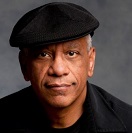 Philip Akin – Black Shoulders Legacy Award
Philip Akin – Black Shoulders Legacy Award
The Philip Akin – Black Shoulders Legacy Award is the first award of its kind, solely dedicated to the success of Black Canadian theatre artists, ensuring creators are equipped with the skills to be at the top of their professional game. It honours and ensures the continued legacy of one of the cornerstone artists in Canadian Theatre, Philip Akin.
The Black Shoulders Legacy Award aims to support and nurture emerging Black Canadian theatre artists through financial support, artistic guidance, and national promotion. Five artists will be selected each year via submission and awarded a $5,000 honorarium towards training and other opportunities to enhance and grow their artistic craft. This national award will be given to both performing and non-performing artists who show promise and are working towards a future in theatre, further amplifying Black voices in the Canadian theatre landscape.
Was the creation of Obsidian Theatre in 2000, ground-breaking for Black theatre in Canada?
No, since the 70’s, there had been two other companies – Black Theatre Workshop and Theatre Fountainhead. Over the years, our goal was to respond to a desire to bring Black voices to Canada’s cultural community. At Obsidian, we developed and produced Black theatre – tell our stories in our own words, something that was not always well understood or recognized by provincial and national funders. We wanted to start showcasing emerging and established Black theatre professionals.
Black artists have been around in theatre and had successful careers, but we felt that we weren’t seeing our stories on stage. Obsidian was a way to do that, and in our own way – opening opportunities to develop Black theatre artists and theatre company’s.
At Obsidian, I think we have been constant in keeping a focus on play production, in developing Black playwrights, and training theatre professionals. I am proud that we had over 60 to 70 apprentices, who performed in the plays that we produced, and I’m proud that Obsidian has been financially successful and secure to do this.
Has there been a transition from sole to co-productions – has that broadened opportunities for Black theatre professionals?
It helped Obsidian (and others) to build partnerships. The larger theatre companies have a vested interest in doing shows in the best way possible and we benefited – Shaw would take a co-production, put it on a truck and drive it to Toronto where we could put it on locally. That is a huge cost saving for a small theatre organization. We found that the Shaw Festival, the Harold Green Jewish Theatre and Musical Stage Theatre were particularly forward-looking organizations in working with us and other Black theatre organizations.
At Obsidian, you focused on building an endowment fund as a source of ongoing, secure operating revenue. Why was that important for Obsidian?
When we first started, we had a goal of having our own theatre one day – we intentionally set aside 10% of our donations every year towards a building fund. While our dreams for an actual ‘physical space’ changed, the practice of saving paid off. We benefited particularly from the Arts Endowment Fund program – if we raised $3000 towards our endowment, the program matched that amount, but allowed us to keep the $3,000 we raised – in that way Obsidian grew the endowment AND had funds to deploy each year in productions and growing the company.
This was a great way to build long term financial security for the health of the organization. While not covering all our operating budget, the $5,000 in annual endowment income we receive funds an apprentice each year. This was important for Obsidian and we continued adding to the endowment and are now benefiting from the Canadian Heritage matching program.
I have always had a philosophy that we give every donor a receipt, regardless of the amount. We treat all donors with respect and that respect has paid off as they return year after year to support Obsidian. One donor to the BSLA fund said that she never expected to hear back from us – the personal thank you meant so much that she is willing to speak up for the award within her community.
I’m honoured by this new award and the response of a broad group of donors – who want to help Black artists set themselves up for success. The support of donors allows us to do the right thing and do it with grace. It is interesting as we think about the award – we call it Black Shoulders, recognizing that there is no single Black community in Canada – There are many and they differ and the theatrical response will vary widely between all of the Diasporic communities.
What next for Philip?
I think it is important to move away from an organization when you step down, and let the next generation of leaders have their freedom to explore, grow and be successful. I continue to marvel at the support of Canadians who are building the BSLA fund – my hope is that its impact will be long and deep.
For more information on Philip Akin – Black Shoulders Award: www.bsla.ca
